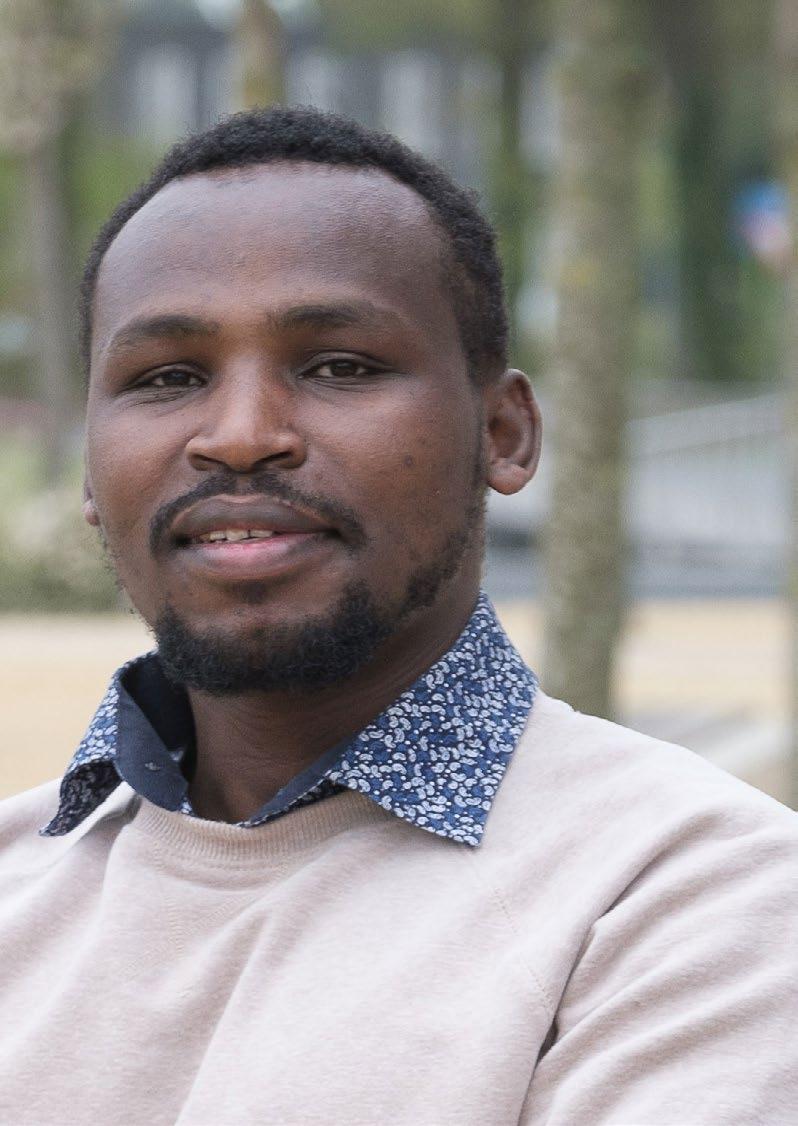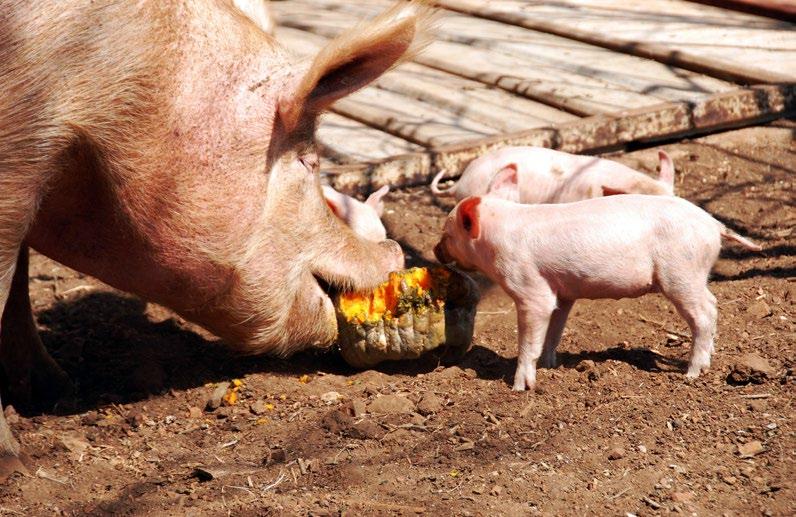
2 minute read
goal is to help farmers increase their production’’
Fredrick Sammo is taking a Master’s in Animal Sciences in Wageningen with a scholarship from University Fund Wageningen. After graduation, Fredrick hopes to become a specialist in nutrition for pigs and poultry: “In my country, there are very few experts in that field. I hope to advise farmers on proper nutrition and help them increase production in a sustainable way.”

Advertisement
Fredrick grew up in a village in the northern part of Tanzania with his parents, both non-commercial farmers, and his nine siblings. After secondary school, he took a government loan to study Animal Sciences at Sokoine University of Agriculture. Continuing his master’s at this university did not feel right to Fredrick: “I wanted to really challenge myself by going abroad, gain a fresh perspective and see what education systems and lab facilities in developed countries looked like.”
Fredrick had heard about Wageningen before, and after learning it was the best agricultural university in the world, he set his mind to pursuing a master’s degree there. “I started applying for scholarships in 2015, but there were so many applications each year I didn’t get accepted.” For years he worked while waiting for a scholarship, first in a feed formula company for pigs and poultry, then as an assistant tutor at his university. He was also able to follow an internship in the United States at a commercial pig farm. In 2021 came the good news that Fredrick had been awarded a scholarship from the Future Animal Nutrition Africa Fund via University Fund Wageningen. “I had to let the fund know whether I wanted to accept the scholarship and remember thinking: ‘Why would anyone not accept?’”
Studying in Wageningen has been a challenge for Fredrick as the educational methods differ greatly from those in Tanzania. “There you must simply memorise the theory and learn how to use certain equipment. In Wageningen we are applying knowledge to different real-life situations. ” While this makes studying in Wageningen a good preparation for his working life, it also takes much more effort. “But I believe that if other people can do something, I can do it too. And if people are passing these courses, so can I. If people are finishing a master’s program and getting their PhD, then I will be able to do so too. Studying here is very fulfilling as I’m pushing my limits and learning a lot.”
Fredrick hopes to continue with his PhD after graduating so that he can teach at his previous University in Sokoine and hopefully be a specialist in pig and poultry nutrition: “There are few experts in that field in my country. I want to be able to give farmers advice on proper feeds. The right feed in livestock farming is crucial and I can help them make more profit.” This can be done in a more sustainable way as well, according to Fredrick. “Right now, most of our waste streams are not utilised at all. A lot of fruits are thrown away, for example, which could be fed to animals. I want to explore alternative protein animal feed sources such as black soldier fly larvae (BSFL) that can replace soybean meal and fish meal. I think that the use of BSFL has real potential in East Africa as it can valorise organic wastes into protein to be used as sustainable animal feed. This contributes to the second Sustainable Development Goal of creating a world free of hunger.”
If it weren’t for the scholarship, Fredrick would have never been able to study in Wageningen. “I don’t think I could make that much money in my entire working life in Tanzania.” This scholarship supports students as they develop themselves and become knowledge leaders in their home country. Fredrick will soon be helping farmers in Tanzania make a better living and taking steps towards using sustainable animal feed.








